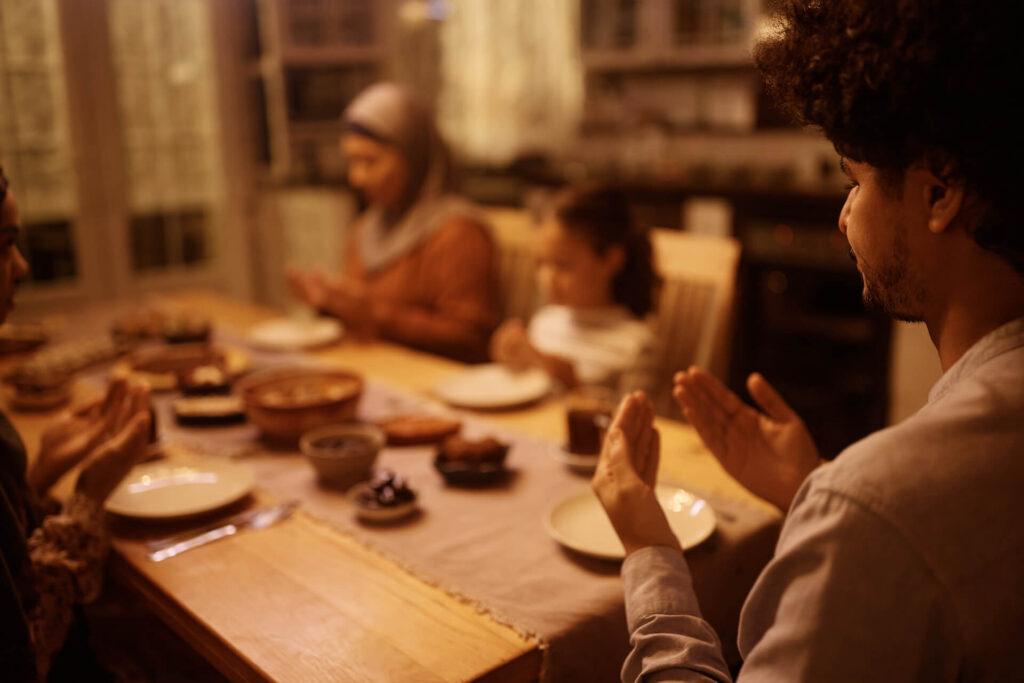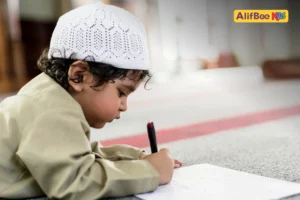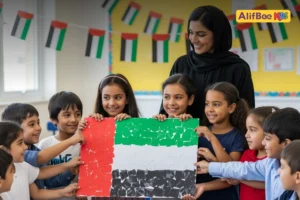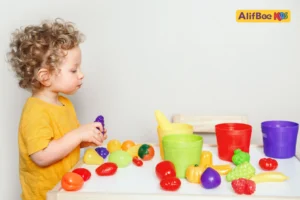Preparing a Special Ramadan for Kids
Ramadan is a special opportunity for learning, bonding, and experiencing the essence of this cherished month. Muslims around the world anticipate Ramadan each year, dedicating it to fasting, prayer, and increased good deeds with their families and loved ones.
While Ramadan is not obligatory for kids, or before reaching the age of takleef (usually younger than 14 or before puberty), involving them in its rituals can make the month unforgettable.
Participating with family and friends helps children understand the importance of fasting—one of the key pillars of Islam—and motivates them to embrace it when they come of age.
In this article, we will share practical tips and ideas to involve your children and make a special Ramadan for kids with various activities, helping them develop a sense of community, gratitude, and spirituality.
Moreover, if you want your kids to learn Arabic at an early age, learning about Ramadan can be a good way to learn about the Arabic culture.
7 Practical Tips to Make Ramadan Fun for Kids
Tip 1: Use a Colorful Ramadan Calendar with Daily Surprises
A Ramadan calendar is a great way to make children feel excited about welcoming Ramadan.
The calendar can have daily actions related to Ramadan, like helping prepare the Iftar table, doing something nice for a family member, or going to Taraweeh prayer with family.
Create the calendar with your kids and make it more engaging by using colorful drawings. You can also download the free AlifBee Kids calendar we have designed.
Tip 2: Engage in Fun Ramadan Crafts and Decorations
Another way to teach your kids about Ramadan and have fun with them is to create Ramadan decorations and crafts together.
You can work together on lanterns, crescent moon mobiles and Ramadan greeting cards. Use these activities to explain the significance of these Ramadan symbols.
Decorating the house with crafted decorations can also enhance the festive atmosphere and family bonds.
You can also design Ramadan welcoming cards and send them to friends and family to welcome the holy month.
Tip 3: Get Kids Involved in Preparing Iftar
Iftar preparation can also be a wonderful way to fill time with interesting Ramadan activities for kids. You can help your kids prepare easy recipes or even simple Ramadan foods and dishes.
You can also create a “Kid’s Iftar Menu” to make them feel included with healthy Ramadan recipes like date balls, fruit milkshakes, and crescent-shaped treats.
Besides strengthening your bond with your children, cooking together has many benefits. It encourages kids to try new foods and helps them develop important life skills.
Tip 4: Incorporate Storytelling and Ramadan-themed Books
There are many benefits to reading to your kids, from expanding language capacity to boosting emotional awareness and helping your child learn language quickly and use it more effectively. It would also be a good idea to introduce beginner Arabic words to your kids as you read together.
During this holy month, make the most of this valuable family activity by reading stories to your children about Ramadan, Prophet Muhammad (PBUH), his companions (may Allah be pleased with them), and Islamic traditions. You can also teach them new Surahs from the Quran and recite them together.
Create a storytime tradition after Iftar or before bedtime and take the opportunity to bond with them and teach them about Ramadan. Save the Children has compiled an excellent reading list for kids that you can explore.
Another brilliant reading option is the reading collection by AlifBee. These are tales and stories in Arabic for both beginners and more advanced learners, available for download and reading on Kotobee.
This series, called AlifBee Stories & Tales, is divided into three levels, each featuring exercises after every story to assess comprehension, vocabulary, and grammar knowledge. With this reading series, you could provide your children with entertaining stories and help them learn Arabic.
Tip 5: Start a Kindness Challenge with Your Kids
Prepare a 30-day kindness jar with simple good deeds written on colorful scraps of paper.
Have your kids take out a paper each day in Ramadan, and explain how small acts (like helping a sibling or sharing toys) embody Ramadan’s spirit.
Here is a list of 30 kind acts you can add to your Ramadan Kindness Jar:
- Say صباح الخير (Sabahu L Khayr) “Good morning!” to everyone with a big smile.
- Help set the table for Iftar.
- Share your favorite toy with a sibling or friend.
- Make a thank-you card for your parents or teachers.
- Donate gently used toys or clothes to charity.
- Help clean up your room without being asked.
- Say “please” and “thank you” throughout the day.
- Give water to birds or stray animals in your neighborhood.
- Help younger siblings with their homework or chores.
- Draw a Ramadan greeting card for a neighbor.
- Compliment someone and make them smile.
- Save some of your pocket money to donate to those in need.
- Pick up trash from your yard, school, or local park.
- Pray together with your family.
- Call or video chat with grandparents and ask how they are.
- Help carry groceries for your family.
- Bake or prepare a treat to share with neighbors for Iftar.
- Hold the door open for someone.
- Write down five things you are grateful for today.
- Give someone a kind note or drawing.
- Help water the plants at home or in your garden.
- Invite a friend to join you in a fun (non-competitive) game.
- Offer to help a teacher or classmate at school.
- Say kind words to someone who seems sad or lonely.
- Make a small gift for someone special.
- Help pack food boxes for those in need.
- Say رمضان كريم “Ramadan Kareem” to everyone you meet.
- Spend time reading to a younger sibling or cousin.
- Give up something you like for the day to make someone else happy.
- Pray for others’ happiness and well-being.
Tip 6: Teach Through Experience: Take Kids to Community Events
Ramadan is a month that cherishes family bonding and communal gathering. It brings excellent opportunities for such events like taraweeh prayer and charity events.
Use these times to teach your kids Islamic teachings, values and good deeds through practice.
Tips to make these outings enjoyable for young children:
- Choose events that are short and interactive.
- Bring quiet activities (like coloring books) for longer gatherings.
- Praise their patience and participation to make the experience positive.
- Allow them to donate small amounts to charity to cultivate generosity.
Tip 7: Plan Fun Ramadan-Themed Games and Activities
Having fun while learning about Ramadan can offer another way to enjoy this holy month with your kids.
You can play indoor games like “Ramadan Bingo,” treasure hunts, or trivia quizzes; or outdoor activities that are gentle and suitable for fasting kids, like walking in nature, watching birds, and doing simple gardening activities.
Maximize the benefit of these games by teaching your kids related Arabic words and practicing them together. The key is to keep the games light-hearted and fun.
You can use AlifBee Kids for fun games and activities to learn Arabic and get introduced to Arabic culture.
What Does AlifBee Kids Help Kids Learn?
- Arabic Alphabet & Pronunciation
- Basic Vocabulary for Everyday Use
- Simple Phrases & Daily Expressions
- Early Reading Skills
- Listening & Speaking Practice
- Arabic Learning Through Games & Quizzes
- Cultural Awareness & Islamic Values
- Fine Motor Skills Development through Interactive Exercises
Why Parents Love AlifBee Kids
- Safe, ad-free learning environment
- Child-friendly design that keeps kids engaged
- Flexible learning pace—perfect for both beginners and advanced young learners
- Encourages independent learning with easy navigation for kids
- Very helpful for parents who decide to teach their kids Arabic at home
Final word
We hope you found these tips helpful. Make sure to make the most of Ramadan 2025 by teaching your kids about this holy month through fun activities and spending fun time with them.
These simple actions will make Ramadan enjoyable and meaningful for kids, as they learn Arabic, participate in Ramadan traditions with family and relatives, and foster love for Ramadan from an early age.





